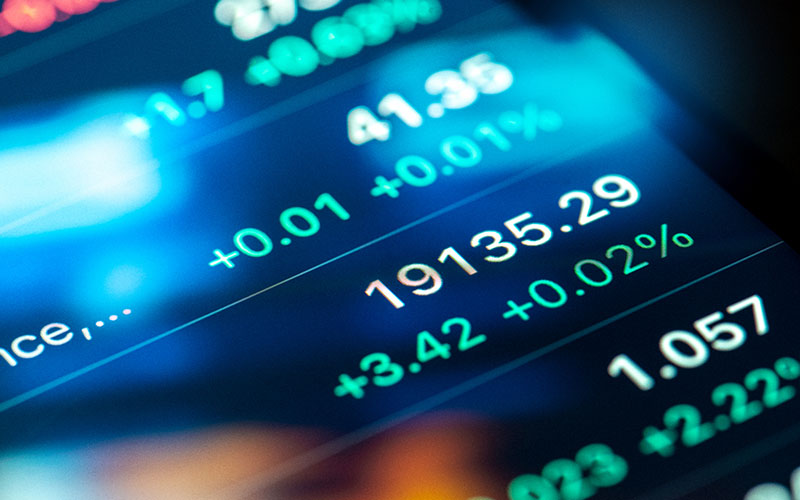
This content is for information and inspiration purposes only. It should not be taken as financial or investment advice. To receive personalised, regulated financial advice please consult us here at Elmfield Financial Planning in Padiham, Burnley, Lancashire.
With inflation still running high in 2023 (7.9% in June), many investors are looking for ways to mitigate its impact on their returns. Gold and other commodities (e.g. silver) are often touted as effective ways to hedge against inflation. Yet are they a good idea?
Below, our financial planners in Padiham explain how commodities work as an asset class – along with some important pros and cons to consider. We hope this information is helpful and please do contact us if you wish to discuss your investment strategy with a financial adviser.
What are commodities?
Commodities are “tangible assets” that are traded on financial markets. These include precious metals such as gold, silver, nickel and zinc. Yet they also encompass other physical goods such as agricultural goods (corn, coffee, soy etc.) and energy commodities like oil and natural gas.
Commodities can generate returns for investors primarily by generating capital gains. Here, an investor can buy and sell a good later when it reaches a higher price. Commodities do not pay dividends or interest.
How can people invest in commodities?
One option, of course, is direct ownership. For instance, you could buy a 1kg gold bar and store it in your home – intending to sell it later for a profit. However, personal storage presents security risks (e.g. theft) as well as insurance costs.
Therefore, commodity investors tend to own these tangible assets more “indirectly”. For instance, futures contracts allow investors to engage in a written agreement which binds them to buy/sell a commodity at a specified price in the future.
Another option is for an investor to buy a commodity-linked note or certificate, which takes its value from a commodity index or the performance of a specific commodity.
A final idea is to invest in commodity ETFs (exchange-traded funds). ETFs trade on stock exchanges, allowing investors to buy or sell shares in them. These funds track the price movements of a particular commodity (e.g. gold) or “basket of goods” (e.g. agricultural goods).
Why are commodities widely seen as an inflation “hedge”?
There are two main reasons behind this view: historic performance and the inherent characteristics of commodities.
Indeed, starting in 2021, rising commodity prices have played a key role in the inflation surge still going on today. Russia’s invasion of Ukraine constrained the global supply of agricultural goods (driving up prices). Energy prices also rose as the West imposed sanctions on Russia.
It is important to recognise that many commodities are, in fact, inputs into manufacturing processes. For instance, lithium and cobalt are used to make smartphones. Or, commodities can be goods which are directly consumed by households – such as wheat.
This relationship means that, when prices rise in general within the economy, commodities tend to rise too. Therefore, many reasons that investing in commodities can help investors to protect their portfolios if inflation rises in the future.
Should I include commodities in my portfolio?
The suitability of commodities for a portfolio is highly dependent on an investor’s unique financial goals, risk appetite, investment horizon and personal beliefs/values.
For example, some investors do not like commodities because they do not “produce” anything. Warren Buffett famously said that gold “Doesn’t do anything but sit there and look at you.” To make a profit, the investor can only hope that someone else will buy it from them later at a higher price.
For Buffett, an investment holds promise if it produces something useful. This explains why he has invested in silver – an industrial metal which is difficult to replace, and which has many uses.
There are certain advantages to investing in commodities. As a distinct asset class with a low performance correlation with stocks and bonds, they can be a useful way to diversify a portfolio.
Moreover, many commodities have strong and consistent demand. Oil and natural gas are crucial to modern economies and are likely to remain so for many years – even as many countries try to shift their energy base to renewables.
However, there are some notable disadvantages to commodities. Firstly, physical goods need storage and transportation. These incur costs for the companies handling them which then get passed down to investors.
Commodity markets can be vulnerable to price manipulation. A few powerful participants can wield significant influence, spreading false information or posting fake orders to artificially inflate or deflate prices for their own gains.
However, even in commodity markets with a more diversified investor base, a high level of price volatility is common. Certain goods might follow a cyclical pattern – such as agricultural goods which can lead to oversupply or shortages.
Often, however, commodities are affected by events outside of investors’ control or powers of foresight. For instance, maybe an embargo stops a country from exporting a key energy good to the global economy – like oil or natural gas.
Commodities can be a useful option for certain investors in specific cases. However, it is important to recognise their risks and to consider discussing your options with a financial adviser before investing large sums.
Invitation
If you are interested in starting a conversation about your own financial plan or investments, then we’d love to hear from you.
Please contact us to arrange a free, no-commitment consultation with a member of our team here at Elmfield Financial Planning in Padiham, Burnley, Lancashire.
Reach us via:
T: 01282 772938
E: info@elmfieldfp.co.uk

